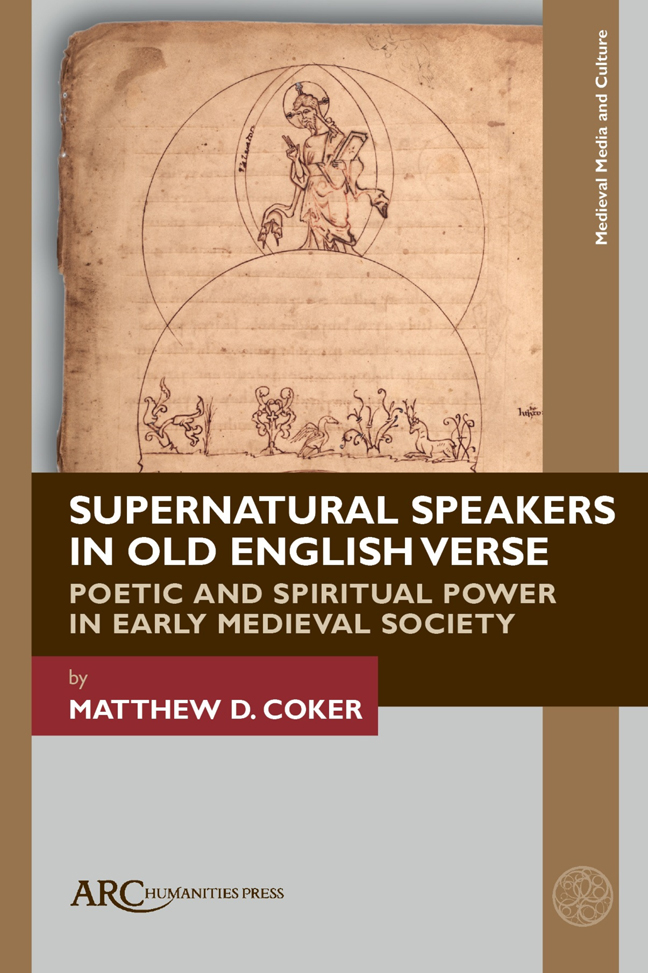Book contents
Chapter 2 - The Works of the Word in Genesis A
Published online by Cambridge University Press: 20 February 2024
Summary
GENESIS A, the first poem of Oxford, Bodleian Library, MS Junius 11 (pages 1–11 and 41–142), is the second-longest Old English narrative poem, with a total of 2,320 lines. This fascinating poem retells the narrative of Genesis 1:1–22:13, from the creation of the world to Abraham's near-sacrifice of Isaac. Genesis A is usually considered to be one of the earliest Old English poetic compositions on the basis of metrical and linguistic grounds. There was even a time when the biblical poems of the Junius manuscript were all thought to be the work of Cædmon. That suggestion has fallen out of favour, but critical appreciation for this artful poem has only increased.
The book of Genesis, the first text in scripture for understanding God's relationship with the world, offers a foundational perspective on God's communication with humans. Fittingly, Genesis A, likely among the earliest of Old English poems, contains more divine direct discourse than any other Old English poem. As I will demonstrate, Genesis A is particularly focused on God's words: after foregrounding the poem's action with a prologue permeated by the words-deeds theme (lines 1–111), the poet uses a special metrical form in nine key episodes throughout the poem in order to perform the power of these words for his audience.
Þurh his word: Creation and Loyalty
The Prologue: Genesis A 1–111
“In the beginning God created heaven, and earth” (Genesis 1:1); “In the beginning was the Word, and the Word was with God, and the Word was God” (John 1:1). These primal prologues sound so familiar that they scarcely warrant citation, but the poet of Genesis A begins his creation narrative in an entirely different way from these first verses. In words reminiscent of the Preface to the Canon of the Mass (Vere dignum et justum est … nos tibi … gratias agere, “It is truly fitting and right for us to give you thanks”), the poet begins by drawing attention to our own role as an audience (1a–3a):
For us it is great justice [or, “it is our great duty/right”] that we praise with words, love with minds, the Keeper of the heavens, the Glory-King of hosts.
The significance of the first word, us, must not be ignored.
- Type
- Chapter
- Information
- Supernatural Speakers in Old English VersePoetic and Spiritual Power in Early Medieval Society, pp. 55 - 88Publisher: Amsterdam University PressPrint publication year: 2023



